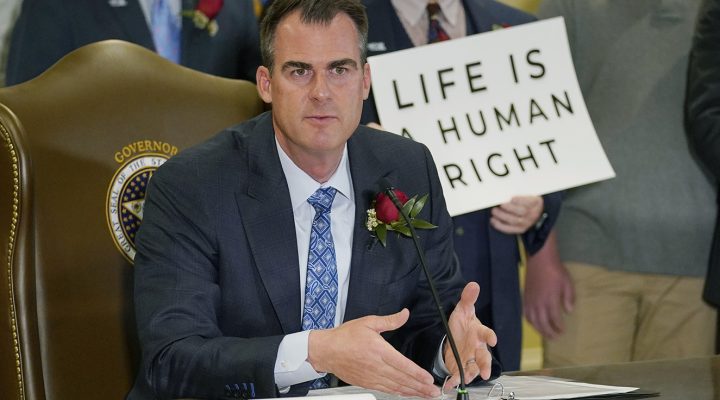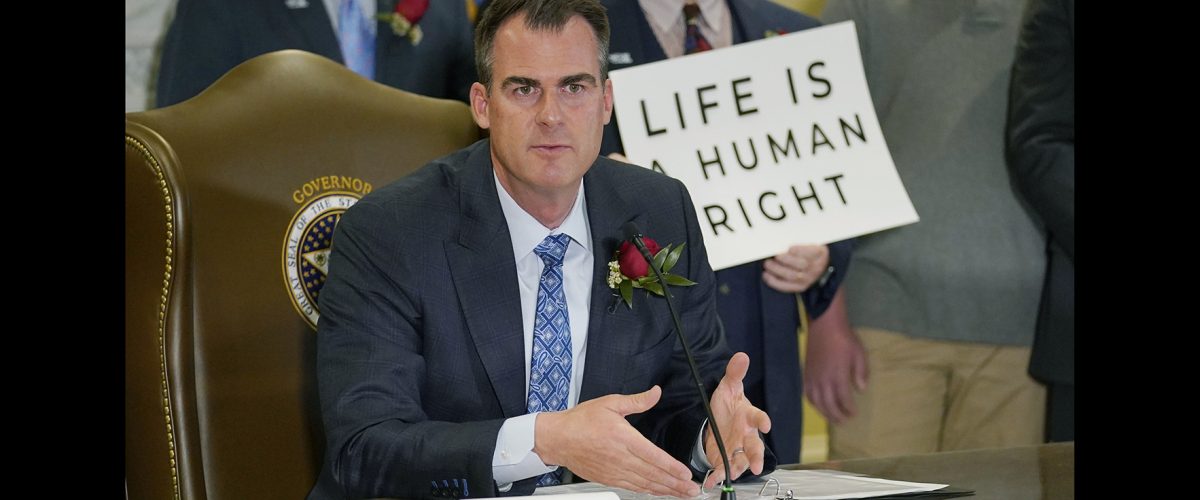The state of Oklahoma has announced an unprecedented plan to execute 25 inmates over a two-year period beginning this month, about one execution per month. This plan will clear out more than half the current population on Oklahoma’s Death Row, which stands at 43 today.
Those scheduled to be executed include multiple prisoners with severe mental illness, brain damage and claims of innocence.
People of faith must act swiftly and decisively to oppose this action, Catholic and evangelical death penalty opponents said during an Aug. 18 webinar.
“Time is of the essence, and if we don’t engage — if Oklahomans don’t engage — it’s going to be a blood bath. There will be so much blood on our hands and God will not be pleased,” said Cece Jones-Davis, an Oklahoma-based Disciples of Christ minister and anti-death penalty advocate.
“If Oklahomans don’t engage — it’s going to be a blood bath.”
She was joined on the webinar by Tim Luschen, a fellow leader in the state’s anti-death penalty movement and pastor of St. Charles Borromeo Catholic Church in Oklahoma City. The session was moderated by Emma Tacke of the Catholic Mobilizing Network and Sam Heath of the EJUSA Evangelical Network.
The webinar was held to inform Catholics and evangelicals on moral and theological objections to the death penalty and to motivate Christians to attend vigils, sign petitions, call representatives and write letters to the editor ahead of the scheduled executions — especially the Aug. 25 lethal injection of Joseph Coddington.
Coddington’s case demands special urgency from people of faith because the Oklahoma Pardon and Parole Board recently recommended that Gov. Kevin Stitt grant him clemency, Jones-Davis explained.

Cece Jones-Davis
She was speaking from experience. Jones-Davis led the successful clemency campaign for former Oklahoma death row inmate Julius Jones, to whom she is not related. Jones’ sentence was commuted to life in prison without possibility of parole four hours before his scheduled execution in November 2021.
It is imperative that Christians press Stitt to grant the recommended clemency and that he not wait until the eleventh hour to do so as he did with Jones, she said.
“I can’t tell you what (Jones’) family went through. I pray that (Stitt) does not allow this man and his family to get to that place. I pray that he takes the recommendation of the parole board and commutes that sentence — and does that very soon.”
He has been a staunch opponent of abortion on “pro-life” grounds but does not apply the same pro-life standard to capital punishment.
Gov. Stitt is a conservative Republican in a deeply conservative state. He has been a staunch opponent of abortion on “pro-life” grounds but does not apply the same pro-life standard to capital punishment. He is up for re-election this year with an unusually viable opponent, the state’s Secretary of Public Instruction, Joy Hofmeister. She switched parties in order to challenge Stitt, who she claims has hijacked the state’s Republican Party.
In this election year, death penalty opponents must not rest as long as these 25 executions on the calendar, Jones-Davis said.
Heath said it would be especially frustrating if Stitt rejected the parole board’s clemency recommendation for Coddington. “If the governor does not accept the recommendation, then what is the point of the Pardon and Parole Board?”
Jones-Davis replied that there is precedent in the state for ignoring such recommendations, including the 2017 reportby the Oklahoma Death Penalty Review Commission, which was convened after botched executions drew national scrutiny and led to a moratorium on capital punishment.
An independent, bipartisan commission spent 12 months examining the state’s death penalty system.
The independent, bipartisan commission spent 12 months examining the state’s death penalty system and interviewing judges, police, prosecutors and the families of homicide victims and defendants who were wrongly accused. Execution methods and the cost to taxpayers also were investigated.
The executive summary of the report concluded that Oklahoma’s death penalty should, at the least, remain on pause. “In light of the extensive information gathered from this year-long, in-depth study, the Commission members unanimously recommend that the current moratorium on the death penalty be extended.”
The study included 45 recommendations to improve Oklahoma’s death penalty system, including improvements to the drugs and procedures used for lethal injection and to investigatory and trial methods for determining innocence in capital cases.
“Many of the findings of the Commission’s year-long investigation were disturbing and led Commission members to question whether the death penalty can be administered in a way that ensures no innocent person is put to death,” the report continued. “Commission members agreed that, at a minimum, those who are sentenced to death should receive this sentence only after a fair and impartial process that ensures they deserve the ultimate penalty of death.”
The report also pointed to the U.S. Supreme Court’s standard that capital punishment should be reserved for the worst of criminals.
“Unfortunately, a review of the evidence demonstrates that the death penalty, even in Oklahoma, has not always been imposed and carried out fairly, consistently and humanely, as required by the federal and state constitutions,” the report stated.
After reading an excerpt from the 273-page report, Jones-Davis said she is appalled that Oklahoma would schedule executions given that none of the report’s recommendations have been adopted.
“How in the world can we have botched executions, put together a team of professional people to look at all the problems and then just carry on as normal and execute 25 people? That’s insane to me,” she said.
Tacke said a vigil is planned at 9 a.m. Aug. 25 at the front gate of the Oklahoma State Penitentiary if Coddington’s execution proceeds. She added that tips for preaching against the death penalty and other resources are available online.

Tim Luschen
But Luschen said opposition also must happen one-on-one between Christians against capital punishment and those who support it.
It’s important to point out that the death penalty is often racist and inconsistently applied, and that it does not deter violent crime and can lead to the execution of innocent people, he said.
Theology comes into it, as well, he added. “If we truly believe in a merciful God, it does not seem we are reflecting that if we are calling for punitive measures against people for purposes of revenge.”
It’s also important to constantly refer to death row inmates as people, he advised. “No longer see them as prisoners in cells, but as someone’s father, son, mother or daughter and that we are to accompany them on this journey. If we begin to know these people as human beings, then perhaps it softens our hearts a little bit.”
But moral and theological conversations about the death penalty must be preceded by nonjudgmental trust building with those who support capital punishment, Luschen added. “You have to form the relationships before you enter into those questions.”
Related articles:
The death penalty is dying a slow death; it’s time we pull the plug | Analysis by Stephen Reeves
Panel of faith leaders will raise awareness of death penalty injustice
American support for death penalty remains low, as new debates arise in Oklahoma, Ohio and Texas


